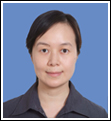| Biography | |
|---|---|
 Prof. Yan Su University of Macau, China |
|
| Title: Energy Efficiency Enhancement of Concentrating Photovoltaic-Thermal (CPV-T) Systems by Using Nanofluid Cooling | |
| Abstract: Nanofluids as coolant for concentrating photovoltaic-thermal (CPV-T) systems attract more attentions due to the increasing demand of renewable energy, the bottleneck of the efficiency of output efficiency with increased temperatures of CPVs, and the improving technology of manufacture of high performance nanoparticle suspending fluids. Mixed convection fluid cooling in solar energy systems has been investigated by both experimental measurement and numerical simulations. Experimental studies show that both thermal and electrical efficiency are slightly increased by using nanofluid cooling. To further understanding the physical mechanism, numerical simulations of the dynamic processes have to be performed. Limited by the computational speed and unknowing sub-continuous nanofluid flow and heat transfer properties for this multiple scale problem, conventional computational fluid dynamics (CFD) method with continuous equations, a new sub-continuous method based on mesoscopic scale simulations is necessary. A sub-continuous lattice Boltzmann model is proposed with sub-continuous models for effective thermal conductivity (ETC) and effective viscosity (EV) nonlinearly related to both nanoparticle concentration and size. Nanoparticle sizes together with mean free paths in solid and fluid phases are used to define two Knudsen numbers. These two Knudsen numbers are further applied to build the new effective conductivity and viscosity models, which include non-linear effects of both Knudsen numbers and volume fractions. In dimensionless form, the parameters are described by concentration, Knudsen number and Richardson number. Nanofluid cooling efficiencies for various solar irradiances are compared with those of pure water cooling. Flow and temperature fields are illustrated for nanofluids with the nanoparticle concentration from 1% to 10%, particle size less than 120 nm, and flow rate over a range of 0.17–3.34 L/min (i.e., the inlet velocity from 1/10 to 2 times of the natural convection velocity scale). The enhancement ratios of Nusselt numbers, drag coefficients, and power coefficients due to the application of nanofluids compared to water are presented. An objective enhancement function is defined as the ratio of the Nusselt number to the power coefficient. The maximum enhancement ratio is 1.14 for nanoparticle concentration at 8%, Knudsen number at 0.1 (Al2O3 nanoparticle size 6 nm), and Richardson number 10 (the inlet velocity about 1/3 of the natural convection velocity scale), respectively. This study provides a practical tool for optimal nanofluid cooling enhancement of CPV-T solar systems. | |
| Biography: Dr. Su is currently an associate Professor of Electromechanical Engineering in University of Macau. She received his PhD degree from the Department of Mechanical Engineering from University of Minnesota in 2006. In year 2000 and 2003, she obtained her Bachelor of Thermal Engineering from Tsinghua University, and Master of Mechanical Engineering from Hong Kong University of Science and Technology, respectively. Dr. Su’s research interests include Thermal Dispersion in Porous Medium, Renewable Energy Systems, Oscillating Flows, and Indoor Air Quality. She also serves as the director of the solar energy laboratory of University of Macau and associate editors of Journal of Heat Transfer (ASME) and Case Studies in Thermal Engineering (Elsevier). | |
